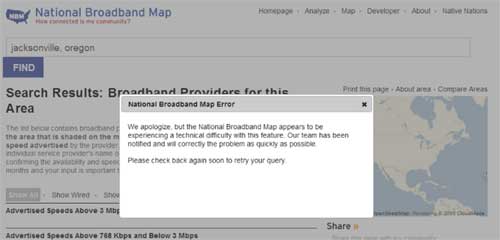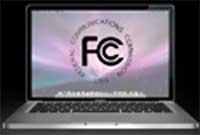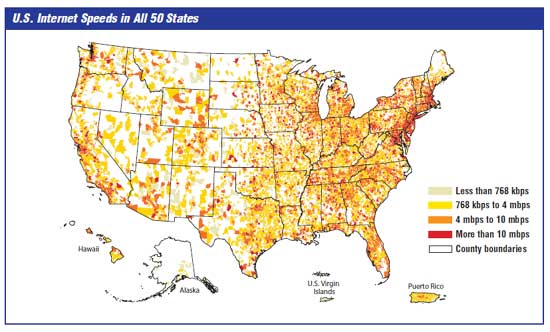New media has completely transformed the way consumers gather news and information. While it has created many new opportunities, it has also brought about numerous challenges to traditional media and even contributed to, what some consider, dying business models.
Some traditional media enterprises have embraced new media with great success. Others, however, have not had the same experience. One of the biggest blows, if you will, to traditional media has been that consumers have become reporters themselves. We have seen how powerful these reports have been in events involving the Middle East, the death Osama bin Laden, and more.
Today, consumers no longer have to wait until designated times to get their news and information. Not only that, they don’t even have to visit specific news sites to find out what’s going on. News today is easily accessible wherever consumers are.
How do you consume news? Do you utilize traditional media forms, or do you rely on new media outlets? Let us know.
The big question in all this is, how will media continue to evolve? This is exactly what the FCC and the FTC sought out to do some 2 years ago. When the effort began, it seemed to lean heavily in the direction of saving journalism, namely, struggling media enterprises. In 2010, the FTC released its “Potential Policy Recommendations to Support the Reinvention of Journalism,” which was received with much criticism.
Since then, the FTC has not been involved with the effort. The FCC, however, recently released its own “Future of Media” report called “The Information Needs of Communities: The Changing Media Landscape in a Broadband Age.” This report was met with both criticism and praise. Most of the criticism came from the left, and the praise came from right wing groups that want to preserve the First Amendment.
Speaking about the report, Adam Thierer, a senior research fellow with the Technology Policy Project at the Mercatus Center at George Mason University, told us the report was a “welcome relief.” He said, “It shied away from the more extreme types of proposals that we had heard some academics put out there in the past.”
The report focuses on the abundance of media and how consumers can access this wealth of information with as little as a click of a mouse, but it didn’t actually call for any drastic recommendations. It did note that traditional media institutes are struggling and that high-quality journalism was hard to find, even in this age of abundance. However, consumers now have choice, which was something that was strictly limited before.
The FCC admits that getting both really high-quality journalism and giving consumers options is a difficult challenge. Although the commission did not provide a solution to this dilemma, it did advise the media to continue experimenting with processes and systems.
Media reform group Free Press strongly opposed the report and called it a “major disappointment.” In a press release, President and CEO Craig Aaron said, “The report discusses many important ideas, but where the FCC actually has the power to help local communities, the agency abdicates its responsibility in the areas.”
Free Press, along with many other media reform organizations, hoped that the report would call for more aggressive policy proposals to ensure quality news and information for local communities.
“If the FCC decides to relax, waive, or ignore its own rules that prevent the formation of local media monopolies, it may temporarily help pad the profits of the large conglomerates, but it will not cure what ails journalism or the media industry,” said Aaron. “The only way to ensure vibrant, quality journalism-and a healthy democracy-is to engage the public so starved for meaningful local news and information today. We hope that this report can still serve as a catalyst for better public policy to address the serious problems the document identifies.”
On the other side of controversy, Thierer said, “There’s an important wall in America, a wall between, if you will, press and state… that wall is rarely breached, and it should not be breached so easily just because there’s a time when the media is struggling in this country, as they are today.”
“This debate has a level of elitism at the margins at times where some people say, ‘You need to eat your greens and find the good journalism,’” he said. “Living in an age of abundance in the Internet and digital world… we can spend a lot of time online – probably messing around, watching and listening to all sorts of stuff, including a lot of nonsense – and not always consuming that which others think is best for us. But the question is, how do you force them to do that?”
He also asks the question, “Do you want a massive bailout of failing journalistic enterprises?”
From a practical standpoint, Thierer believes that if the government begins to impose policy on the media, it will only lead to more policies. While the government could bring some improvements to the media sector, he doesn’t think that it should be able to force what it thinks users should consume.
“Information technology is moving way too fast for our federal regulators to keep up with it,” he said. “We live in gut-wrenching, interesting, disruptive times… some of this experimentation and evolution is just going to have to play itself out… there isn’t any easy answer.”
Do you think the government needs to step in to help improve the media sector?








 The plans would effectively create a “walled garden” that excludes Skype, Netflix and other popular consumer Internet services, putting those service providers at a competitive disadvantage and restricting consumer choice and innovation.
The plans would effectively create a “walled garden” that excludes Skype, Netflix and other popular consumer Internet services, putting those service providers at a competitive disadvantage and restricting consumer choice and innovation.  “This challenge is about using the open Internet to protect the open Internet,” said FCC Chairman Julius Genachowski.
“This challenge is about using the open Internet to protect the open Internet,” said FCC Chairman Julius Genachowski. 
 Still, Ellison just said, "As the agency charged with overseeing the public airwaves, we are committed to ensuring that the consumers affected by this breach of privacy receive a full and fair accounting."
Still, Ellison just said, "As the agency charged with overseeing the public airwaves, we are committed to ensuring that the consumers affected by this breach of privacy receive a full and fair accounting."
 “Mystery solved: today’s settlement with Verizon Wireless is about making things right and putting
“Mystery solved: today’s settlement with Verizon Wireless is about making things right and putting